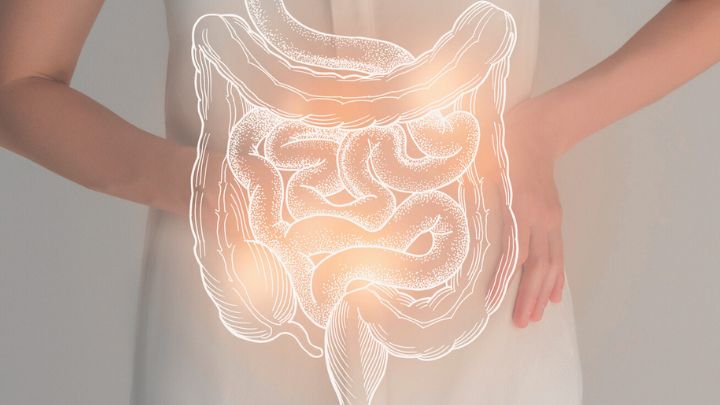Ernest Hemingway once said, “We are all apprentices in a craft where no one ever becomes a master.” He was talking about writing, but these words apply perfectly to health too—particularly gut health.
Your gut is home to trillions of microorganisms that respond to every bite you take. While you might feel like you’ve mastered your routine, there’s always more to uncover. And one of the most powerful, science-backed ways to boost your gut health is apprently through fasting.
Research shows that intermittent fasting can transform your gut microbiome, improving digestion, reducing inflammation, and enhancing overall well-being.
In this Avea article, we dive into how fasting for gut health works and share practical tips on using fasting the right way to enhance both gut health and longevity.
In this article
Free guide to reverse your biological age

- Master the science of rejuvenation.
- Apply proven tips to turn back the clock.
- Transform your health with top longevity specialists.
What is intermittent fasting?
Intermittent fasting (IF) is an eating pattern that focuses on when you eat, rather than what you eat. It’s not just about weight loss—IF has been shown to improve metabolic function, reduce inflammation, and, most importantly, boost gut health by reshaping your microbiome.
There are several popular ways to practise IF, each with varying effects on digestion and the gut:
- 16:8 method: Fasting for 16 hours each day and eating your meals within an 8-hour window, which aligns closely with the body’s circadian rhythm, promoting microbial diversity and gut barrier function.
- 5:2 method: Eating normally for five days and reducing calories for two non-consecutive days, which gives your digestive system a break while still promoting gut health.
- Alternate-day fasting: Alternating between regular eating and fasting days, which encourages a balance in the microbiome by giving beneficial bacteria time to flourish.
- Eat-stop-eat: Fasting for 24 hours once or twice a week can give your gut a full reset, promoting autophagy and reducing inflammation.
- Warrior diet: This method allows for a single large meal in the evening, but can still promote beneficial changes in gut bacteria, as long as the food choices are microbiome-friendly.
However, finding the right type of fasting for your body is key, especially for women. Fasting can have different effects depending on where you are in your menstrual cycle.
Discover the truths behind fasting and the 28-day cycle, and learn how fasting differs for women.
Why does a healthy gut microbiome matter?
Your gut microbiome is an ecosystem made up of trillions of microorganisms, including bacteria, viruses, and fungi, all of which play a critical role in how your body functions. A healthy, balanced gut microbiome is linked to better digestion, stronger immunity, and even mental clarity.
If you’re looking to support your gut and mind connection further, supplements like Avea’s Biomind can be a helpful addition to your daily routine.
Biomind is a next-generation gut-brain axis probiotic supplement, featuring 10 well-researched probiotic strains, with Panax Ginseng, Vitamin B6 and B12, and a dual-release Duocap® technology.
This helps ensure that beneficial bacteria reach your intestines. It not only boosts gut health but also supports mental clarity and immune resilience.
Experience Avea’s next-gen probiotic supplement

- 4x probiotic survival: Advanced Duocap® technology
- Targeted gut-brain support: Panax Ginseng, 10 strains (30Bn CFUs), Vitamin B6 & B12
- Backed by science: 1000+ studies
Fasting has been shown to help diversify the gut microbiome, enhancing the functions of beneficial bacteria. Here’s what a healthy gut can do for you:
- Break down food: The right microbes help you digest food and extract nutrients more efficiently.
- Produce essential vitamins: Gut bacteria create important vitamins, such as B Vitamins and Vitamin K, which your body needs for energy and bone health.
- Strengthen immunity: A healthy gut forms a strong barrier against harmful pathogens.
- Regulate metabolism: By balancing blood sugar and insulin levels, your microbiome supports a healthy metabolism, reducing the risk of metabolic diseases.
- Boost fat-burning: Certain gut bacteria promote fat storage in a way that supports healthy weight management.
Your gut will influence how you store fat, balance blood sugar levels, and respond to hormones that either make you feel full or hungry.
Disruption in gut microbiome is known as dysbiosis, one of the 12 hallmarks of ageing. It leads to several short terms and long term conditions.
Can fasting heal your gut?
Yes, fasting can be a game-changer for your gut, helping to reset and heal the delicate ecosystem of microorganisms living inside you.
When you fast, your body goes into reset mode, tapping into its internal resources and sparking some remarkable changes in your digestive system.
Increasing microbial diversity
One of the most powerful effects of fasting is an increase in microbial diversity—essential for a healthy gut. The more diverse your gut bacteria, the better your body can digest food, absorb nutrients, and defend against harmful invaders. Fasting creates the perfect environment for beneficial bacteria to thrive, whilst limiting the growth of harmful microbes that rely on constant feeding.
Boosting short-chain fatty acids production
Fasting stimulates the production of short-chain fatty acids (SCFAs), which are vital for reducing inflammation and strengthening the gut lining. These SCFAs play a key role in making your digestive system more resilient and balanced, helping to support overall gut health.
SCFAs, such as butyrate, enhances the gut barrier. A stronger gut lining protects against toxins, pathogens, and diseases, reinforcing overall immunity and digestive health
Activating autophagy for gut repair
In addition to producing SCFAs, fasting triggers a natural process called autophagy, where your body cleans out damaged cells and regenerates healthier ones.
This process is particularly beneficial for your gut, as it helps repair the gut lining and maintain the integrity of the gut barrier. By removing damaged or dysfunctional cells, autophagy ensures that the gut barrier remains strong and capable of keeping harmful substances out, whilst allowing essential nutrients to be absorbed.
Autophagy not only helps to prevent “leaky gut” syndrome, where harmful particles can pass into the bloodstream, but it also reduces chronic inflammation—a key factor in conditions like irritable bowel syndrome (IBS) and inflammatory bowel disease (IBD). This makes fasting an even more powerful tool for long-term gut health and resilience.
Promoting beneficial gut bacteria
By limiting nutrient availability, fasting creates an environment where beneficial microbes like Christensenellaceae—known for thriving in nutrient-scarce conditions—can flourish.
At the same time, it helps eliminate harmful bacteria that rely on a steady flow of nutrients. This shift in your gut microbiome reduces inflammation, improves digestion, and supports metabolic health, protecting against conditions like obesity and diabetes.
Discover 4 surprising ways how intermittent fasting can affect your blood sugar levels here.
Gut motility and dietary fibre fermentation
Fasting naturally slows gut motility—the movement of food through your digestive tract. When managed correctly, this slower pace can be highly beneficial, as it gives gut bacteria more time to ferment dietary fibre.
This leads to the production of short-chain fatty acids, which, as mentioned above, are crucial for gut health. They help reduce inflammation and strengthen the gut barrier.
Note that, if gut motility slows down too much, it can lead to issues like constipation, bloating, or microbial imbalances. That’s why adopting a balanced fasting approach is important to keep your digestion running smoothly without unwanted side effects.
The science behind fasting and gut health
Nutritional changes can reshape your gut health in just a single day. Fasting, an ancient practice rooted in human evolution, has evolved alongside our nutrition.
Since fasting and nutrition are so deeply connected, it’s no surprise that fasting has such a powerful influence on your microbiota.
For thousands of years, our ancestors adapted to periods of scarcity, which helped shape how our digestive systems and gut bacteria respond to fasting today.
Let’s explore how fasting influences our gut microbiota, the physiological shifts it triggers, and how this practice plays a vital role in maintaining gut health and promoting longevity.
Latest science: the power of intermittent fasting and protein pacing
A recent study tested a new dietary strategy for weight loss and metabolic health—and the findings were nothing short of remarkable.
Participants followed a strict routine of intermittent fasting combined with protein pacing, where protein intake was evenly spaced throughout the day. The results? Surprising, to say the least.
Researchers found significant improvements in key health markers, including:
- Improved gut health
- Weight loss
- Enhanced metabolic responses
But here’s what shocked everyone: the benefits of intermittent fasting with protein pacing were far more pronounced than those from simple calorie restriction, a well-known strategy for boosting longevity.
The takeaway? Gut health, metabolism, and obesity are all deeply intertwined. By focusing on improving your gut health, you give your metabolism the boost it needs to help manage weight more effectively.
To test the strategy, researchers recruited 41 overweight or obese participants for an 8-week trial. These participants were split into two groups:
- Group 1: Followed a heart-healthy, continuous calorie-restricted diet based on USDA guidelines.
- Group 2: Practised intermittent fasting combined with protein pacing (IF-P), ensuring protein was evenly spaced out throughout the day.
The intermittent fasting and protein pacing group saw results that went well beyond what calorie restriction alone could achieve:
- Fewer digestive issues: A noticeable reduction in gastrointestinal symptoms.
- More diverse gut microbiome: A key indicator of gut health, microbial diversity improved significantly.
- Increased cytokines: These proteins, linked to fat loss and improved metabolism, saw a boost.
- Enhanced fat-burning processes: With more amino acid by-products helping in weight management.
Perhaps most impressively, there was a significant increase in beneficial gut microbes—often linked to lean body types and overall health.
It’s clear that focusing on gut health isn’t just good for digestion; it’s a key strategy for better metabolic health and sustainable weight loss.
Ramadan and gut health
Fasting has long been a part of various cultures, and Ramadan provides a fascinating lens through which to observe its effects on gut health. During this holy month, Muslims fast from sunrise to sunset—often for around 16 hours a day—closely resembling the popular 16/8 intermittent fasting method.
A study on healthy men who fasted for Ramadan showed something remarkable: by the end of the month, their gut microbiomes had shifted in favour of beneficial bacteria, particularly Lachnospiraceae. These bacteria are associated with lower risks of cancer, reduced inflammation, and improved heart and mental health.
However, the benefits weren’t permanent. Once they returned to regular eating patterns, their gut microbiomes reverted back to their pre-fasting state.
This shows you, just how quickly gut health can respond to changes in diet and fasting patterns. Fasting, even for a short period, encourages the growth of good bacteria, but maintaining these improvements requires consistency.
Sleeping and gut health
Another example of where fasting helps gut recovery is during your sleep. Yes, that’s a natural fasting state. After a full day of digesting food and producing essential molecules, your gut finally gets a break.
Most people, especially those not practising intermittent fasting, tend to eat throughout the day and into the night—no judgement. But research shows a strong link between your gut microbiome and circadian rhythm.
The diversity and health of your gut bacteria depend heavily on the quality of your sleep, which acts as an unintentional fasting period.
Even better, intermittent fasting has been shown to strengthen the gut barrier—the protective lining that decides what to let into your body and what to keep out, like toxins and harmful bacteria.
Whilst you sleep, gut activity slows, giving the gut lining time to repair itself. Extending fasting beyond your natural sleep cycle can:
- Strengthen the gut lining
- Reduce chronic inflammation, a hallmark of ageing
- Promote microbial remodelling, boosting overall gut health
Fasting and gut disorders: risks to be aware of
Fasting offers many health benefits, but it’s not without risks, particularly if you suffer from digestive issues. Whilst fasting can help reset and balance your gut, certain conditions may actually be worsened by prolonged fasting if not carefully managed.
- Irritable Bowel Syndrome (IBS): Fasting for long stretches can make IBS symptoms, like bloating and stomach pain, worse. The disruption in your regular eating routine can throw off gut motility, leading to flare-ups.
- Inflammatory Bowel Disease (IBD): If you suffer from IBD, fasting could potentially trigger flare-ups, increasing gut inflammation and sensitivity. Managing your fasting windows carefully is key.
- Gastroesophageal Reflux Disease (GERD): Prolonged fasting can sometimes lead to an increase in stomach acid, raising the risk of acid reflux and digestive discomfort. If you’re prone to GERD, you’ll need to approach fasting with caution.
How to optimise fasting for gut health
To get the benefits of fasting without the potential downsides, it’s essential to approach fasting mindfully and with balance.
Here are five simple tips to help you fast for better gut health:
- Ease into it: Don’t rush into long fasting periods right away. Start with shorter windows, like 12-hour fasts, and gradually increase the length of your fasting periods as your body adjusts. Pay close attention to how your gut responds, and don’t push yourself too hard.
- Stay hydrated: Water plays a crucial role in maintaining digestive health. During fasting, drinking plenty of water will help keep things moving through your digestive tract and prevent constipation or bloating. You can also include herbal teas or broths to stay hydrated and support gut function.
- Add probiotic-rich foods: When you’re eating, make sure to include probiotic-rich foods like yoghurt, kefir, or kombucha. These will support a healthy gut microbiome, especially when your body’s adjusting to fasting.
- Eat balanced meals: Make sure your meals are nutrient-dense and balanced, with a focus on fibre, healthy fats, and proteins. This will not only keep you feeling fuller for longer, but also support gut health by providing the necessary fuel for your beneficial bacteria.
- Avoid extreme fasting: Whilst intermittent fasting has benefits, overly restrictive or extreme fasting methods can do more harm than good. Flexible approaches, provide the benefits of fasting without putting undue stress on your digestive system.
How to break your fast?
Breaking your fast is just as crucial as the fasting itself, as it creates an opportunity to replenish your gut with healthy bacteria.
When fasting, some bad bacteria are destroyed, but good bacteria can also die off.
Therefore, it’s important to break your fast with foods rich in prebiotics and probiotics, as well as polyphenols.
This helps repopulate your gut with beneficial microbes, improving your microbiome within weeks.
Starting your first meal with gut-friendly foods can ensure better digestion and overall gut health.
Keynote from Avea
Fasting offers a powerful, science-backed way to transform your gut health. By increasing microbial diversity, boosting short-chain fatty acid production, and promoting beneficial gut bacteria, fasting doesn’t just improve digestion—it supports overall metabolic health and longevity.
But, as with anything, balance is crucial. By approaching fasting mindfully, listening to your body’s signals, and prioritising nutrient-dense meals during eating windows, you can enjoy the benefits without the risks.
Remember, consistency is key. Whether through intermittent fasting, mindful eating, or simply giving your body more time to rest between meals, you’re taking a meaningful step towards better gut health and long-term wellness.
















